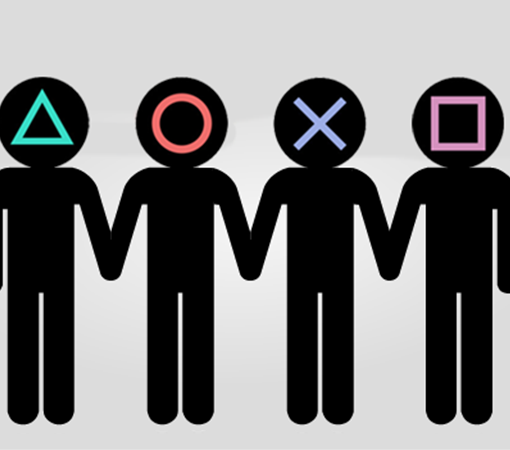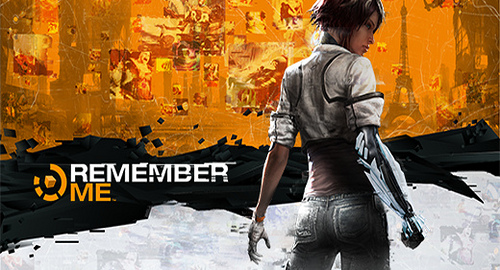We’ve all heard the old saying, “If you can’t ask, then you can’t afford it”, but I want us to consider for a moment a slightly modified version that might say “If you have to ask, it might be true for you”. In the last couple of days I have experienced a couple of situations that were clearly racist and found myself facing the questions that oppressed people often find themselves faced with when they report such occurrences…Are you sure? Aren’t you just overreacting? And my usual response to this is, “If you have to ask then you must have it.” And in this case the it is white male privilege.
If you have to, choose to, or feel that you have the right to question the legitimacy of the oppression of an(Other) then you are probably the beneficiary of white male privilege. It seems like common sense, right? But we hear it all of the time when dealing with real world situations like mine and with video games. It’s something that Mike Hoye mentioned in our interview with him several weeks ago. He said that when he mentioned to people that he had received death threats from internet rolls for hacking Zelda for his little girls that men were disbelieving…white male privilege, while women responded knowingly and commiserated.
Offended by skimpy epic armor that covers pubis and nipples only? Not down with the jiggle physics? Want more female playable characters in games? Aren’t you women just being too sensitive?
Being harassed online? Getting death and rape threats (for you and your family) from virtual strangers? Aren’t you overreacting? These people don’t really know you and your children. Their just some harmless jerks online who have no life.
More stereotypically racist African American and Hispanic characters? It’s just a a bad characterization, right? It’s not true so why worry about it?–or even worse–Well stereotypes are really just generalizations of facts, aren’t they?
Now understand, having white (male) privilege does not make you a bad person. Some people are just born with it. It’s what you do with it that matters. If you use it to give yourself an upper hand or to oppress others, then there’s a problem. A big question is what is to be done with this privilege? Most importantly, acknowledge that it exists because it is the lack of acknowledgement that continues to perpetuate (in part) the issues above.
I recently started playing Guacamelee on my PS Vita. Since I still count Lucas Arts’ Grim Fandango as one of the greatest games of all times, I was pretty excited when I saw that Guacamelee was another game that revolved around the day of the dead. Not because I wanted to see Mexican caricatures or hear horrible puns and word play that revolves around the day of the dead, but because I think that what Grim Fandango did (and still does) so well was to use Mexican tradition to make richer deeper characters and stories without being offensive. And this is definitely not something that Guacamelee does successfully. While there has been discussion of the game on the internet of whether or not the game could and should be considered racist, most notably from folks like Jorge Albor who wrote about how he was not offended by the game as a Mexican. But oddly enough, Albor’s Kotaku piece reads a lot like Richard Rodriguez’s Hunger of Memory. Albor asks some thought provoking questions and admits that the game leaves him with some troubled feelings, but I think that the fact that he does feel the need to keep asking himself if he is offended is enough of a clue that there may be something there.
In the same way that Rodriguez illustrated his own assimilation through a series of milestone moments like Americanization of names, intentional denial of one’s own culture, and a refusal of connection to others like him, Albor hints at these things when he writes
Am I offended? I don’t know. That’s the wrong question to ask. Reactions to cultural portrayals are deeply personal. We are better off asking: What does the game do right? What does the game do wrong? And is the game made with care?
Albor seems to push questions of racism aside and attempts to focus on what is of greatest import to a historically homogeneous, white and male industry. He even questions the legitimacy of a cultural product made by Canadian developers who may have had little access to Mexican culture outside of Jack Black’s 2006 film Nacho Libre. Albor really seems to be working through some of his own issues (no negative connotation to that word here) through this game and that is something that I can really appreciate not only in a gamer, but in the medium of games themselves.
But what worries me most is the folks who are not thinking critically about serious issues with and in games when it is clearly necessary. In the same way that I am disturbed by the fact that very few players (as evidenced by video play throughs and forum posts) are really thinking critically about what Papo & You has to say about child abuse I am disturbed by the fact that few, non-minority folks are talking about the possibility that Guacamelee is even racist and when they do we see pieces like this one out of Venture Beat. Where the writer, William Harrison, goes back to the ancient Greek definition of stereotype (when it meant “solid impression”) and attempts to make an argument that the use of stereotypes is good because Guacamelee offers a solid impression of Mexican culture (an impression that even Albor calls “farcical”).
Even if I were to play devil’s advocate and go along with the notion that Drinkbox Studios had good intentions of asking folks to think critically about what they were hearing, seeing, and playing as well as their own perceptions about Mexican people and cultures I am called back to player reaction to Papo & Yo where the message being conveyed was much more straightforward and very few people seemed to get it, care, or interrogate. But one of the problems with white (male) privilege is that those who have it have never had to think critically about these things. They have never had to try to determine whether or not they should be offended. Or had to worry about what would happen to then (personally or professionally) if they were.
Don’t get me wrong, I love the idea of games that make us think serious about their content. I want to see more good games like that, but I just can’t cotton to the idea that we can take something negative and achieve that. There are too many people who will misconstrue the intended meaning and/or take the stereotypes at face value and allow it to influence their perception of Mexican people and culture because they have the benefit of white (male) privilege. After all, if the Mexicans aren’t mad about it or offended by it, why should they be, right?
*Title stolen shamelessly from Hey Ash Whatcha Playin: Quantum Conundrum episode





2 thoughts on “White Male Privilege, It’s So Great to Have*: Guacamelee and Race in Games”
I agree that if you have to ask if something is racist or offensive there’s a good chance there is something wrong with it. And from what you’ve said about that game it does give ya that feeling. And I agree many people today don’t pick up on subtle things and will take them at face value and without knowing or sense have misconceptions created in their minds. 🙁
I’ve lived a sheltered life and my sister was the one who taught me about white (male) privilege, I’m white male, and I try to keep it in mind whenever dealing with anyone and anything to understand different points of view, to know that I haven’t experienced allot of things that many people deal with every day. I try to be understanding and treat people the way they want to be treated.
It’s one of the reasons I love you site and podcasts so much because it keeps me thinking and hopefully make me a better person. So uh, thanks. lol
Your site*
Also sorry for writing a book post.